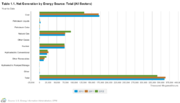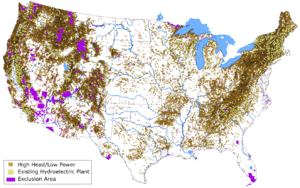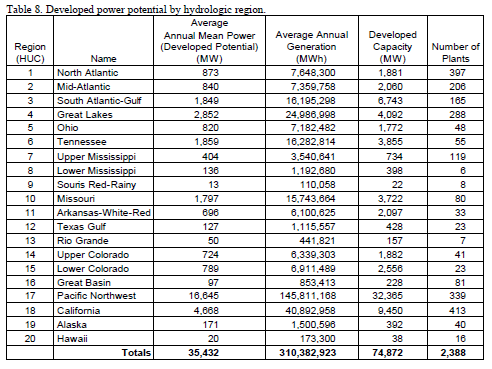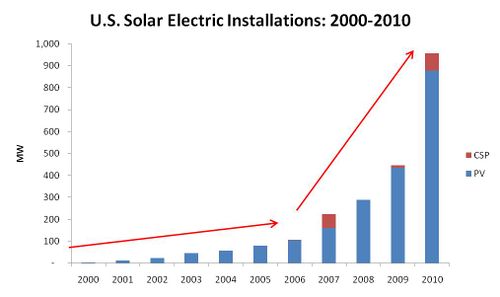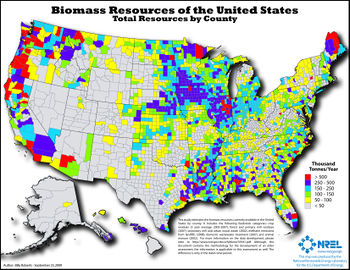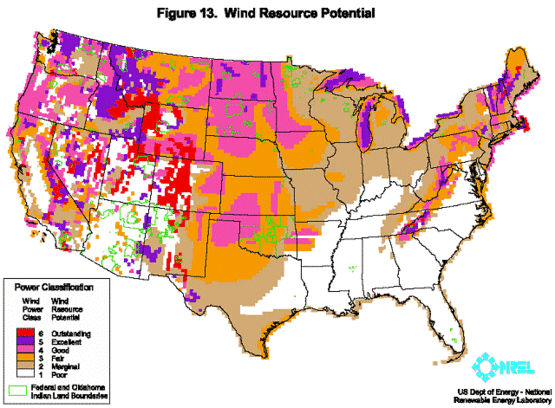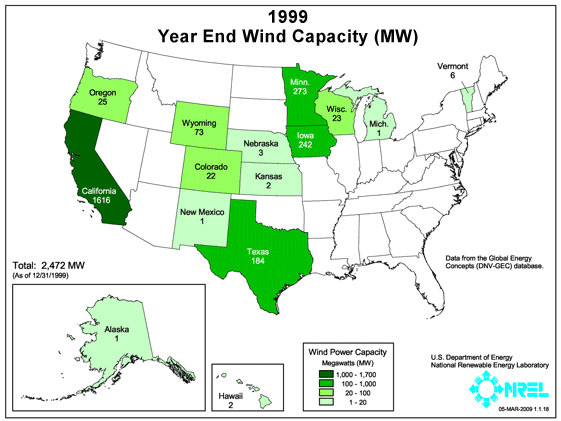Knowledge fuels change
For over a decade, Energypedia has shared free, reliable energy expertise with the world.
We’re now facing a serious funding gap.
Help keep this platform alive — your donation, big or small, truly matters!
Thank you for your support
Difference between revisions of "United States of America Energy Situation"
***** (***** | *****) m |
***** (***** | *****) |
||
| Line 207: | Line 207: | ||
[[United_States_of_America_Energy_Situation#Overview|Go To Top]] | [[United_States_of_America_Energy_Situation#Overview|Go To Top]] | ||
| − | + | ||
| + | <br/> | ||
| + | |||
= References<br/> = | = References<br/> = | ||
Revision as of 13:15, 11 April 2014
| The United States of America | |||
|---|---|---|---|
| Capital | Washington D.C 38°53'N 77°01'W | ||
| Official Languages(s) |
None at federal level | ||
| Government | Federal presidential constitutional republic | ||
| President | Barack Obama | ||
| Prime Minister | |||
| 'Total Area '( km²) | 9,826,675 [1] | ||
| Population | 313,206,000 (2012)[2] | ||
| Rural Population | 55,700,625 (2011)[3] | ||
| GDP (Nominal) | $15.065 trillion (2011)[4] | ||
| GDP Per Capita | $48,147 (2011)[5] | ||
| Currency | United States Dollar $ USD | ||
| Time Zone | (UTC- 5 to -10) Summer (DST) (UTC - 4 to -10) | ||
| Calling Code | |||
| Electricity Generation | 4,253.3 TWh/year (2009)[6] | ||
| Access to Electricity | 100% | ||
| Wind energy (installed capacity) | 43,635 MW (2011)[7] | ||
| Solar Energy (installed capacity) | 3,954 MW (2011)[8] | ||
Overview
Energy in the United States of America are produced from a variety of sources. The primary source of energy in the United States is coal at 42% in 2011.[9]
- Energy Production Estimates in Physical Units, United States, 1960 - 2009
- States Energy Consumption Estimates for Major Energy Sources in Physical Units, 1960-2009
Renewable Energy Sources
Hydropower
|
|
Existing hydroelectric plants and high head/low power water energy sites in the conterminous United States.[10]
|
|
Low head/low power water energy sites in the conterminous United States[11] | |
| Low-head-low power water energy sites in Alaska | |
| Existing hydroelectric plants and high head-low power water energy sites in Alaska |
Solar Power
Biomass
|
Total Biomass Resources of the United States by county. |
Wind Power
|
Wind Recouce Potential in the United States. | |
|
Progressive installed capacity animation. |
References
- ↑ "United States". The World Factbook. CIA. 2009-09-30. Retrieved 2010-01-05 (area given in square kilometers)
- ↑ U.S. POPClock Projection". U.S. Census Bureau. Figure updated automatically.
- ↑ http://www.tradingeconomics.com/united-states/rural-population-percent-of-total-population-wb-data.html
- ↑ United States". International Monetary Fund. Retrieved 2011-10-09.
- ↑ United States". International Monetary Fund. Retrieved 2011-10-09.
- ↑ http://www.energy.eu/stats/energy-electricity-production.html
- ↑ http://www.windpoweringamerica.gov/wind_installed_capacity.asp
- ↑ http://www.seia.org/galleries/pdf/SMI-YIR-2011-ES.pdf
- ↑ http://www.eia.gov/electricity/monthly/epm_table_grapher.cfm?t=epmt_1_1
- ↑ http://hydropower.inel.gov/resourceassessment/pdfs/03-11111.pdf (pg. 47)
- ↑ http://hydropower.inel.gov/resourceassessment/pdfs/03-11111.pdf (pg. 29)
- ↑ http://hydropower.inel.gov/resourceassessment/pdfs/03-11111.pdf (4.4 pg. 33)

